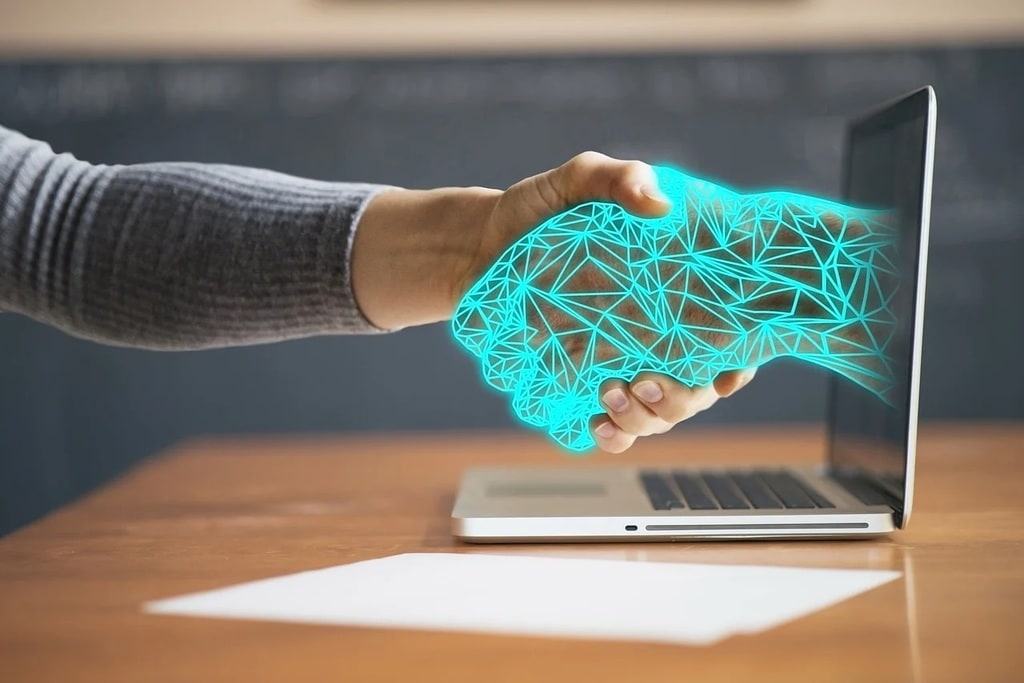Artificial intelligence (AI) is radically changing our daily lives in subtle but significant ways. From virtual assistants to personalized services, it influences how we work, communicate, and even shop. This technological revolution is redefining human interactions and industrial processes, thus transforming the foundations of modern society.
The Transformation of Daily Life by Artificial Intelligence
AI manifests in nearly every aspect of modern life. Personal assistants like Siri, Alexa, and Google Assistant use AI to answer questions, manage schedules, and control smart home devices. These technologies simplify task management by enabling natural and intuitive voice interactions.
Streaming services like Netflix and Spotify leverage AI algorithms to recommend content based on user preferences. This personalization enhances the user experience by providing more relevant and targeted recommendations. Additionally, social media platforms like Facebook and Instagram use AI to filter content and personalize news feeds.
AI Applications in Healthcare
AI also plays a crucial role in the healthcare sector. AI-assisted diagnostics allow doctors to identify diseases such as cancer more quickly and accurately. AI systems can analyze thousands of medical images in seconds, detecting anomalies that humans might miss.
Moreover, health mobile apps use AI to provide personalized medical advice. For instance, apps like Ada Health and Babylon Health offer virtual consultations based on the symptoms described by the user. This democratizes access to healthcare, making it more accessible, especially in areas where access to doctors is limited.

The Impact of AI on Transportation
The transportation sector is also undergoing significant changes due to AI. Autonomous vehicles, like those developed by Tesla and Waymo, use sophisticated algorithms to navigate without human intervention. These vehicles promise to reduce road accidents caused by human errors and make journeys more efficient.
AI-based traffic management systems optimize traffic flow in real-time, reducing congestion and improving urban mobility. These innovations contribute to making cities more livable and reducing carbon emissions.
The Advantages of Artificial Intelligence in Education
AI is also transforming the education sector by making learning more personalized and interactive. Online learning platforms, such as Coursera and Khan Academy, use algorithms to tailor courses based on each student’s needs and progress. This provides a more engaging and effective learning experience.
Educational chatbots assist students by answering questions and providing additional explanations. These tools help teachers by handling repetitive tasks, allowing for better time management in the classroom.
The Revolution of Financial Services
The financial sector also benefits from AI. Banks and financial institutions use algorithms to detect fraud and analyze risks. These technologies enhance transaction security and improve investment portfolio management.
Robo-advisors use AI to offer personalized investment advice at a lower cost. This makes financial services accessible to more people, including those who cannot afford traditional financial advisors.
List of Everyday AI Applications:
- Virtual Personal Assistants: task management, answering questions, controlling home devices.
- Personalized Recommendations: video and music streaming, social media feeds.
- AI-Assisted Medical Diagnostics: analyzing medical images, virtual consultations.
- Autonomous Vehicles: reducing road accidents, journey efficiency.
- Personalized Education: online learning platforms, educational chatbots.
- Fraud Detection: transaction security, risk management.
### Ethical Challenges and Considerations of AI
While AI offers numerous benefits, it also poses significant ethical and societal challenges. Privacy protection and data security are major concerns, as AI systems require large amounts of personal data to function effectively. Robust regulations are crucial to ensure these data are used ethically.
Furthermore, increased automation due to AI threatens many traditional jobs, creating an urgent need for reskilling and training for affected workers. It is essential to balance technological innovation with job preservation.
Conclusion
In conclusion, artificial intelligence is significantly transforming our daily lives by improving efficiency, personalization, and accessibility of services across various domains. However, it is imperative to address the associated ethical and societal challenges to ensure a future where AI benefits all of humanity.
